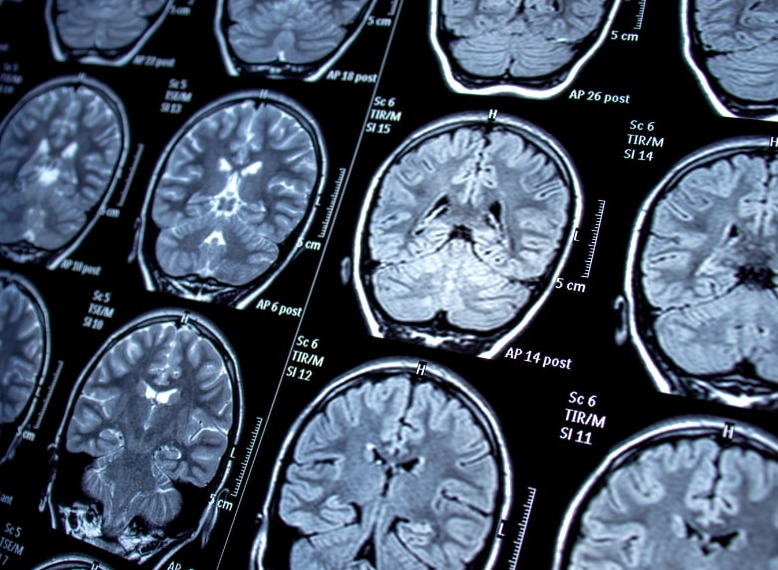- Home
- Forums
- Epilepsy Forum
- Symptoms and complications of epilepsy
- Understanding epilepsy: what are the different types of seizures?
Patients Epilepsy
Understanding epilepsy: what are the different types of seizures?
- 47 views
- 2 times supported
- 11 comments
All comments

Unregistered member
Hello..
My little boy Frankie has ASD (autism) and cortical dysplasia (the cause of his seizures/epilepsy) Frankie is 5 and was born with this congenital condition but it wasn’t until he was 2 1/2 that he had his 1st seizure! It was tonic/clonic and lasted 40 minutes! The most scary thing I’ve seen (and I was a qualified nurse of 16 years at the time!) the noise was horrific.. Frankie has recently had his 2nd seizure roughly 2 years later (feb this year!) it lasted 5 minutes of tonic clonic but twitching occurred for sometime after... he has a few absence seizures and recently had his epilim increased... he’s very aggressive at the time of increase, which is normal and can take 2 weeks to settle!!! Frankie is a very happy and clever little boy and is still in mainstream with an educational statement in place so his needs are met with 1:1 support. He has yearly MRI scans to ensure his condition is monitored. We are under the care of neurology,autism specialist and the children’s epilepsy nurse.

lesmal
AmbassadorGood advisor
![]()
lesmal
Ambassador
Last activity on 09/07/2025 at 11:10
Joined in 2018
1,493 comments posted | 79 in the Epilepsy Forum
74 of their responses were helpful to members
Rewards
-
Good Advisor
-
Contributor
-
Messenger
-
Committed
-
Explorer
-
Evaluator
@Carys79 ... God bless you all and especially little Frankie!
I have had epilepsy since the age of 16 which mainly consists of tonic clonic seizures. At the age of 14, I hit a diving board and 2 years' later the epilepsy started. It took 3 years of testing before epilepsy was diagnosed. Living in Africa was very limited with no knowledge or information on the condition, and very few recognised Neurologists, so obviously this presented its problems over the years. My seizures were 35 minutes long and many causes triggered them off. My Mom was my pillar of strength and made me accept the epilepsy at 16, but realise that I was still human and 'normal'.
Medication obviously took its toll and so did the effect of the seizures on the body. In all my 45 years with epilepsy I have only seen one person having a seizure; very distressing and frightening especially when the aggressiveness sets in. This made me more aware of how each person is so different, and how having a different type of epilepsy could affect one another.
I relocated 16 months ago to UK and must admit, I certainly have noticed changes in the type/pattern of seizures, as well as the less frequency period in between. This of course is new to me adjusting to the weather and obviously a different lifestyle. I have just had MRI/MRA testing for the 1st time ever and await results soon.
Frankie is a great little boy and will always need your constant love and support... Am always here to chat to in case you ever want to message personally.
See the signature
Les
![]()
Speech
Good advisor
![]()
Speech
Last activity on 31/08/2021 at 18:03
Joined in 2017
30 comments posted | 4 in the Epilepsy Forum
Rewards
-
Good Advisor
-
Contributor
-
Committed
-
Explorer
-
Evaluator
As a child my seizures were relatively well controlled until pharmacy gave my mother wrong prescription I had a status at school & when questioned by medical staff they accused my parents of not giving me my meds when my mum handed over the drugs from pharmacy they disappeared isn’t that strange . Luckily I got back on track until my hormones played me up every month I would have two or three seizures a month & it wasn’t until I went to a speech thearapist at a different hospital I transferred to the latter hospital as there was a neurologist who specialised in adolescents with epilepsy after about a year I was controlled his attitude was so much better, the one prior used to shout at my mum for answering as A, I couldn’t speak , B, I couldn’t remember what happened during a seizure where as my parents kept a detailed record to tell the consultant exactly what & where

lesmal
AmbassadorGood advisor
![]()
lesmal
Ambassador
Last activity on 09/07/2025 at 11:10
Joined in 2018
1,493 comments posted | 79 in the Epilepsy Forum
74 of their responses were helpful to members
Rewards
-
Good Advisor
-
Contributor
-
Messenger
-
Committed
-
Explorer
-
Evaluator
@Speech Epilepsy is also hormone related as you found out... mine at 16 were also due to puberty. I fought with the doctors for years about how hormones were related to the seizures, but they wouldn't listen!
I am glad to hear you are now happy with your Neurologist who listens; hoping when I visit the Neurovascular clinic for the first time I will have a Doctor that listens! It is so important they listen to the patient and tries to understand further. I changed Doctors recently due to the previous doctor not listening to me; I am now happy with the new one who has the time to listen.
See the signature
Les

Unregistered member
I had epilisey since i was 5 years old i have all sorts of seizures such as tonic clonic seizures;absence seizures im on loads of tablets and still suffer 2 or 3 of them a week it depends

Unregistered member
I had epilisey since i was 5 years old i have all sorts of seizures such as tonic clonic seizures;absence seizures im on loads of tablets and still suffer 2 or 3 of them a week it depends

Unregistered member
@lesmal thank you for your lovely comments.. it’s nice to know there are other people who understand. Frankies agression is our main issue. I understand it’s medication linked and then the autism comes with anger issues. It’s hard when he becomes angry and aggressive. He kicked and bit my mum last night.. the kick was in anger but the bite was because he was trying to tease her!!! He had her foot! We wouldn’t mind but he’s so strong (he’s built like a 7/8 year old not a 5 year old! And he’s tall!)

lesmal
AmbassadorGood advisor
![]()
lesmal
Ambassador
Last activity on 09/07/2025 at 11:10
Joined in 2018
1,493 comments posted | 79 in the Epilepsy Forum
74 of their responses were helpful to members
Rewards
-
Good Advisor
-
Contributor
-
Messenger
-
Committed
-
Explorer
-
Evaluator
@Carys79 Sorry to hear about the bite to your Mum... Hope she's okay?
I understand the aggression coming through with autism and know it must be hard to deal with.
Remember we're all here for support when needed.
See the signature
Les

lesmal
AmbassadorGood advisor
![]()
lesmal
Ambassador
Last activity on 09/07/2025 at 11:10
Joined in 2018
1,493 comments posted | 79 in the Epilepsy Forum
74 of their responses were helpful to members
Rewards
-
Good Advisor
-
Contributor
-
Messenger
-
Committed
-
Explorer
-
Evaluator
To anyone here with epilepsy, I've just been put on Vimpat? Does anyone else here take it or know much about it? I've done my evaluation but just wondered from others?
See the signature
Les
Give your opinion
Members are also commenting on...
Articles to discover...
Medication fact sheets - patient opinions...
Subscribe
You wish to be notified of new comments
Your subscription has been taken into account








JosephineO
Community managerGood advisor
JosephineO
Community manager
Last activity on 15/07/2024 at 09:21
Joined in 2018
989 comments posted | 10 in the Epilepsy Forum
6 of their responses were helpful to members
Rewards
Good Advisor
Contributor
Committed
Explorer
Evaluator
Friend
Epilepsy seizures
When people hear the phrase “epilepsy” they immediately think of one of the main symptoms of epilepsy: seizures. However, what many people aren’t aware of is the fact that seizures are complex and varied. There exists several different types of seizures and knowing them can help you understand epilepsy better, explain epilepsy to others and increase the awareness for those who don’t suffer from it.
Firstly, seizures are categorised into two types, either focal (or partial) seizures or generalised seizures.
Focal Seizures
Unlike generalised seizures, during focal seizures the patient still has some or total awareness of their surroundings and what is happening. Focal seizures are usually quite brief, lasting from mere seconds to 2 minutes. They affect different parts of the body depending on which part of the brain is having the seizure.
The impact of these seizures can be quite slight, from having a stiff arm and lip smacking to more severe symptoms such as undressing and screaming. Seizures do not only have an impact on the movements of your body but also how you feel mentally. During a seizure patients may hallucinate, have impaired vision and have overwhelming feelings of fear and anxiety. These vary from person to person as everyone reacts differently during a seizure.
Generalised Seizures
Unlike focal seizures, generalised seizures affect the whole brain and therefore, the patient becomes fully unconscious. These seizures generally last between 1 to 3 minutes. If it lasts over 5 minutes then it is recommended to get immediate medical attention.
These are five types of seizures that can occur:
1, Tonic-Clonic Seizures
Tonic-clonic seizures are the most associated with epilepsy. First the patient will stiffen (this is the tonic phase) and all the air will be pushed out of their body, causing a groaning or moaning sound. They will then fall to the ground and experience the clonic phase. This is the stage where they will be having a convulsion and begin jerking wildly.
2, Absence Seizures
These seizures are the most ordinary and sometimes imperceptible. They last just several seconds and do not involve any convulsions. The patient may just become frequently distracted, staring into space and appear to be daydreaming. They are, however, unconscious during this time and unaware of their surroundings.
3, Myoclonic Seizures
Myoclonic seizures are very brief and might just be one jerk of a muscle, such as a hand rapidly jerking into the air. From the outside, it might not look like an epileptic seizure at all because the person still appears to be fully conscious and the lapse of consciousness is so brief. It occurs when patients are tired and manifests in the arms, legs, neck or body.
4, Atonic Seizures
These seizures are common in children and they involve a sudden drop or slack in the body or head. The head may droop forward or the body can slump completely to the ground. These can also be known as “drop attacks”. These seizures last up to fifteen seconds and the person is fully unconscious.
5, Tonic Seizures
Tonic seizures involve the limbs or body suddenly becoming completely stiff. Patients can have a slight change in consciousness during these seizures and they last for up to 20 seconds. They generally occur when the patient is sleeping so they may not be aware that a seizure has occurred.
6, Clonic Seizures
This is the rarest of all seizures and they occur predominately in babies. It lasts between 1 and 2 minutes and causes the whole body to jerk. The muscles relax and tense repeatedly over the course of the seizure.
People with epilepsy can suffer a mix of seizures or they can vary throughout their life but these are the most common for those suffering from epilepsy. Many people aren’t aware of the vast differences between seizures so we hope this article has enlightened you!
What type of seizures do you suffer from? Have you heard about all these types before? Please share to help raise awareness!